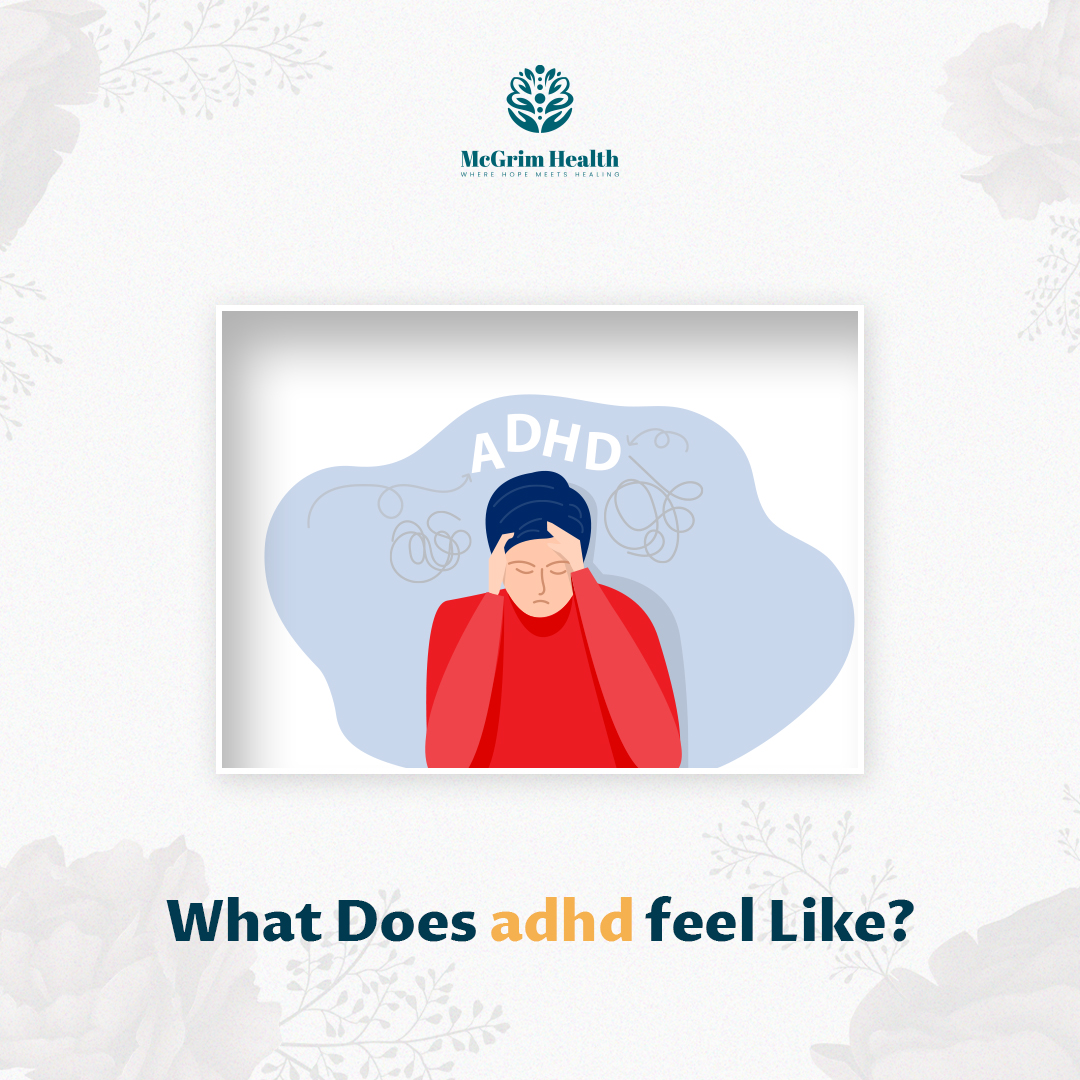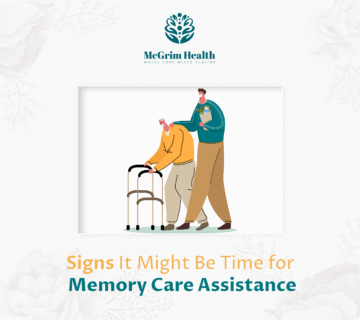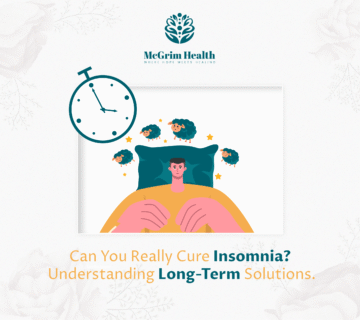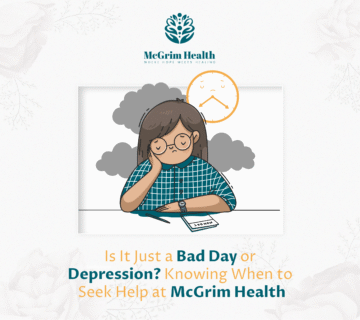ADHD is a complex brain condition. Thoughts swirl, emotions surge, and surroundings can be overwhelming. Each person’s experience is unique, yet similar issues arise.
These include losing focus, disorganization, and emotional turmoil. The brain struggles to process information. This leads to a range of challenges.
These challenges vary from person to person. ADHD is a common childhood issue. It affects boys more and starts showing up in early school years.
If you or someone you know is struggling with ADHD, reach out to McGrim Health today. Our experienced professionals are here to help you manage ADHD with the right tools and support.
Living with ADHD means managing a mind that is always active. Below, we’ll explore “What does ADHD feel like?” We’ll examine common experiences, symptoms, and feelings about ADHD daily.
Understanding ADHD
ADHD stands for Attention-Deficit/Hyperactivity Disorder, which affects how one can concentrate and manage urges.
This state frequently starts in young years and may persevere into adulthood, making daily activities tougher.
Common symptoms include:
- Difficulty staying focused
- Hyperactivity or restlessness
- Impulsive actions
To identify ADHD, a detailed assessment by an expert is needed. It generally consists of past health records, studying behavior, and sometimes further tests.
Dealing with the symptoms is possible through medication, therapy, and life adjustments.
But, the backing of loved ones and teachers is vital for long-lasting improvement. The sooner you handle ADHD, the greater the result.
Does Everybody Have ADHD?
Is ADHD common among everyone? Or they might feel “fake ADHD”, as though their struggles aren’t legitimate.
However, not everyone has ADHD. ADHD starts in childhood and leads to ongoing difficulties with attention, activity, and self-control, which often continue into adulthood, making daily life more challenging.
Unlike occasional focus issues, ADHD has a much larger impact and affects fewer people.
Diagnosing ADHD requires meeting specific criteria that go beyond common concentration problems, and only trained professionals can diagnose it accurately.
What Does ADHD Feel Like?
ADHD can seem like a non-stop mind race. It’s like balancing numerous thoughts, concepts, and chores, but having trouble homing in on just one.
Often, people with ADHD express feeling overwhelmed by duties others find easy. This feeling of being swamped, coupled with focus troubles, triggers annoyance.
It’s usual to hear an ADHD person wonder, “Why do I feel like the world is against me?” or “I feel like there’s something wrong with me,” because their struggles often fly under the radar or get misunderstood.
Overstimulation and ADHD: Feeling Overwhelmed
People with ADHD often feel overwhelmed. Clearing regions requires significant effort.
It’s like being attacked by sights and sounds. This is known as ADHD overwhelm. Imagine entering a busy room and trying to talk.
But you can’t ignore the chatter, bright lights, or the texture of your clothing. For those with ADHD, this brings significant discomfort. It makes them feel trapped or unable to concentrate.
What Does ADHD Feel Like in Adults?
ADHD in grown-ups isn’t the same as in kids. Hyperactivity may reduce as they age, but many adults still face focus issues and feel trapped and swamped.
Their minds race, making it tough to finish tasks or constantly feeling behind.
Mature minds with ADHD usually ask, “What does ADHD feel like in your head?” It usually feels like a rush of unfinished thoughts and passing ideas.
They may sense the promise of accomplishing something great, but their fast-paced mind is tough to keep up with. This often results in annoyance and occasionally poor self-worth.
Can ADHD Be Debilitating?
Yes, ADHD can be debilitating. It influences work, school, personal relations, and self-worth.
Forgetfulness, failing to meet deadlines, or disorganization can arise from ADHD. This can make individuals feel as if they have fallen short.
Constantly battling these symptoms is exhausting, often described as a “brain fog.” As responsibilities grow, coping mechanisms that worked in childhood may fail.
It can leave adults with ADHD feeling incapable and guilty for not meeting expectations, asking, “How do I focus when I have ADHD?” or else “How can I stop feeling like a burden?”
10 Facts about ADHD
Fact 1: ADHD Affects Both Children and Adults
ADHD’s effects can last from youth to adulthood, causing ongoing struggles.
Fact 2: ADHD Isn’t Just About Being Hyper
ADHD is more than hyperactivity. It affects focus, memory, and emotions. It affects everyday existence in many manners.
Fact 3: ADHD and Executive Dysfunction
People with ADHD struggle to finish projects and reach goals due to executive dysfunction.
Fact 4: ADHD and Overwhelm
People with ADHD get anxious about daily tasks, which become overwhelming and strain their focus.
Fact 5: ADHD Can Vary in Severity
ADHD symptoms vary widely among people, from mild to severe.
Fact 6: There’s No Single Approach
ADHD has unique treatment options including medication, counseling, and lifestyle changes.
Fact 7: ADHD is Often Misunderstood
ADHD is often wrongly seen as a lack of discipline. This is not true. Such misconceptions make life harder for those with ADHD.
Fact 8: ADHD Can Be Debilitating
In some cases, ADHD can deeply disrupt daily life and normal functioning. Its effects may make routine tasks difficult.
Fact 9: ADHD Is More than Just a Focus Issue
ADHD shifts emotions, social dynamics, and worldviews. It colors one’s entire experience.
Fact 10: ADHD and Emotional Sensitivity
Criticism hurts people with ADHD more. Their strong emotions make rejection feel worse.
How to Focus When You Have ADHD?
Managing ADHD needs smart strategies. Here are some effective methods:
- Break tasks into smaller parts.
- Use timers, calendars, and applications to stay on track.
- Find quiet places.
- Wear noise-canceling headphones.
- Practice mindfulness.
- Try meditation.
- Establish clear rules.
- Keep an organized setting.
These methods improve focus and manage symptoms. With the right approach, people can overcome ADHD challenges and succeed daily.
Conclusion
Living with ADHD is personal, with its ups and downs. It involves struggles with focus, emotional swings, and feeling overwhelmed. This condition impacts many life areas.
For those wondering “What does ADHD feel like?” it’s important to remember that each person’s experience is unique.
The right tools and support can manage ADHD symptoms and lead to fulfilling lives. Also, understanding ADHD better improves empathy and support for those affected.
FAQs
What is it like to have ADHD as an adult?
Many adults face disorganization. They struggle with tasks, often misplace things, and experience mental fog. These signs often say undiagnosed ADHD, which disrupts daily life.
What is Overstimulation ADHD?
Overstimulation involves loud noises and bright lights overwhelming people with ADHD. These stimuli bombard their senses, leading to typical sensory overload. This overload makes individuals feel attacked by their surroundings.
How can I manage ADHD overwhelm?
Tackle tasks one by one. Take breaks and breathe. Stay present in the moment. By doing so, you’ll reduce tension and chaos and stay focused and calm.
Why do I feel like screaming inside?
This sense may arise due to high stress, frustration, or too much emotion. Frequently, it’s a response to feeling trapped, not being listened to, or finding it hard to manage inner pressures.





No comment